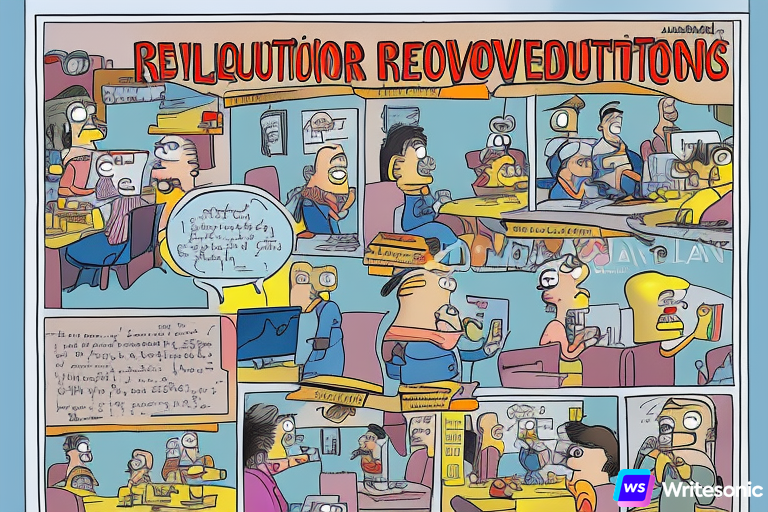Courting Adult Learners in Higher Education
What adult learners need from traditional colleges and universities.
Although i have a doctoral degree in education, I decided that I wanted to get an MFA in Creative Writing. I had two criterion at the start of my search. I wanted a wholly online degree program. I wanted a Massachusetts state school (I am an adjunct professor), because I will would hopefully be eligible for a discount on tuition. A wholly online degree program for an MFA in Creative Writing is not to be found in Massachusetts. Framingham State University came the closest but there were English requirements that were courses only available during the day and at the university.
I did not think that my quest for an online MFA in creative writing was unusual, so I started to search in other states. I guess I could pay full tuition. Program after program, I could not find an online MFA in creative writing. There were many reasons that the programs were not wholly online. One of the reasons was that “in-seat” time was required was because of guest lecturers that were famous or successful authors. Fair enough. I guess I would not mind sitting in a class where the guest lecturer was James Patterson or maybe even President Bill Clinton (he’s a fiction writer, now), https://www.amazon.com/President-Missing-Novel-James-Patterson/dp/0316412694
This lack of an online MFA in creative writing led me to research how traditional colleges and universities accommodate adult learners. Do they try to accommodate adult learners? If I was a traditional student, I had many options open to me in so far as degree programs were concerned. How many people can quit their job to go back to college full time? To be a traditional student? Oh wait. I am too old to be a traditional student.
In the spring of 2013, the National Center for Education Statistics (NCES) (2015) reported that 19 million traditional students (ages 18-23) enrolled in higher education. Fast forward to the spring of 2017 where NCES (2018) reported 17 million students enrolled. That is roughly a 7 percent decrease. Self-proclaimed higher education futurist Bryan Alexander reported that the trend of declining enrollment in higher education is likely to continue. He cited that this enrollment trend will be effected by a declining birth rate and fewer international and immigrant students. Therefore, many colleges and universities are courting the adult learner to fill their seats. From 2005-2015, NCES (2016) reported a 15 percent increase of adult learners enrolling in higher education than the traditional college student.
Courting Adult Learners. Are traditional colleges and universities ready to meet the needs of the adult learner?
The Academic Report from Kaplan University (2017) illustrated that adults want assistance in overcoming obstacles found in the enrollment of many traditional colleges and universities.
1. Financial Aid – Adult learners want flexible financial aid policies with assistance in navigating the student loan process
2. Credit – Adult learners want college level credits awarded from work, life, military, and volunteer experiences.
3. Support – Adult leaners want support services specifically geared for the adult student. Having been away from higher education for years, if not decades, may create anxiety and fear in many adults.
4. Roadmap – Adults want their prior transcripts examined and provided with a very specific roadmap for a completed degree program.
5. Course Availability – Adults are busy. They have jobs. They are raising families. They are helping their own children with homework. They want course availability in multiple formats: weekends, evenings, and online.
It is a symbiotic relationship. Adults want to come back to higher education. Traditional colleges and universities need adult learners. Higher education leaders in traditional colleges and universities need to address these obstacles for adult learners. Their very survival could depend on it.
For more reading about adult learners, please visit the following resources:
The EvoLLLution
The EvoLLLution—a non-traditional education newspaper—is free, web-based learning at its best. The site’s laudable goal is: “illuminating the lifelong learning movement.” Published in Canada, this grassroots higher education site is an amazing compendium of ideas and innovations for reaching and retaining the non-traditional, adult learner. Higher education leaders and innovators upload new articles daily on trends in continuing education, accreditation, accountability, online learning, mobile learning, social media and student recruitment and retention. Subscribe for free to get a weekly dose of higher education innovation in your inbox.
American Council on Education (ACE)
Since the 1970s, ACE has been the go-to organization for any college or corporation seeking to have their non-collegiate courses evaluated for degree credit. ACE also oversees a system whereby military training and occupational levels can be transcripted for college degree credit. Among ACE’s great recent resources is the January 2013 white paper “Post-traditional Learners and the Transformation of Postsecondary Education: A Manifesto for College Leaders.” This paper looks at workers (ages 25 to 64) and argues that colleges need to create a more accessible and cost-effective way to reach working adults. The paper’s author contends that colleges need to create more courses and credentials that evolve around competencies rather than credits or instructional seat time. MOOCs are among the recommended structures for future course delivery to post-traditional learners.
Adult College Completion Network
The Adult College Completion Network is facilitated by the Western Interstate Commission for Higher Education (WICHE) with support from the Lumina Foundation. The site provides first-rate research that addresses the reasons adult college students drop out of school. Also provided: best practice frameworks for how colleges can adopt policies, procedures and degree structures that bolster retention and strengthen the relationship between college courses and work competencies.
Council for Adult and Experiential Learning (CAEL)
Experiential learning is a very ’70s term—and indeed CAEL has deep roots that go back almost that far in higher ed history. CAEL’s mission has been to research, test and implement models for how colleges can document and transcript both work and experiential learning for degree credit. They publish research papers and hold events that teach corporate HR and academics how to develop and administer programs that link learning to work and vice versa. A CAEL published must-read for educators and policy wonks working on developing a better campus for older students is “Employer Views on the Value of Prior Learning Assessment (PLA).” The paper encourages employers to expand tuition assistance to cover not only formal courses, but also their employees’ efforts to document and transcript job competencies and real-life achievements for degree credit.
Lumina Foundation
The Lumina Foundation is shoveling record money into projects that increase the enrollment and retention of adult learners. The foundation funds research projects that target how to re-make higher education into a more adult-friendly enterprise. You’ll find a treasure trove of links here, including engaging policy reports like “2.1 Million Adults in Florida Went to College But Didn’t Finish” and trustworthy guides to Open Educational Resources (OER) for non-traditional college students.
Western Intestate Commission for Higher Education (WICHE)
WICHE rocks and it’s one of the best research websites for education. This agency is one of the original public policy think tanks dedicated to solid research and solution papers for serving non-traditional students. One of WICHE’s best papers is the policy sheet, “Non-Traditional No More: Policy Solutions for Adult Learners: Implementing a Statewide Concierge Model.” The paper recommends that statewide higher education systems implement a “concierge” to help shepherd adult students through the academic system and gain credit and recognition for prior learning, career competencies and workplace learning. The paper looks at all the barriers adults face when they return to college, from registration to financial aid, and develops a blueprint to help ensure that non-traditional college students stay engaged once enrolled.
REFERENCES
Kaplan University Academic Report 2016-2017. (2017, Fall). Retrieved June 28, 2018, from https://www.purdueglobal.edu/academic-report.pdf
Snyder, T. D., de Brey, C., & Dillow, S. (2016, December 1). Digest of Educational Statistics 2015. Retrieved June 28, 2018, from https://nces.ed.gov/pubs2016/2016014.pdf
Snyder, T. D., & Dillow, S. (2015, May 1). Digest of Educational Statistics 2013. Retrieved June 28, 2018, from https://nces.ed.gov/pubs2015/2015011.pdf
The Condition of Education – Preprimary, Elementary, and Secondary Education – Elementary and Secondary Enrollment – Elementary and Secondary Enrollment – Indicator May (2018). (2018, May 1). Retrieved June 28, 2018, from https://nces.ed.gov/programs/coe/indicator_cga.asp


